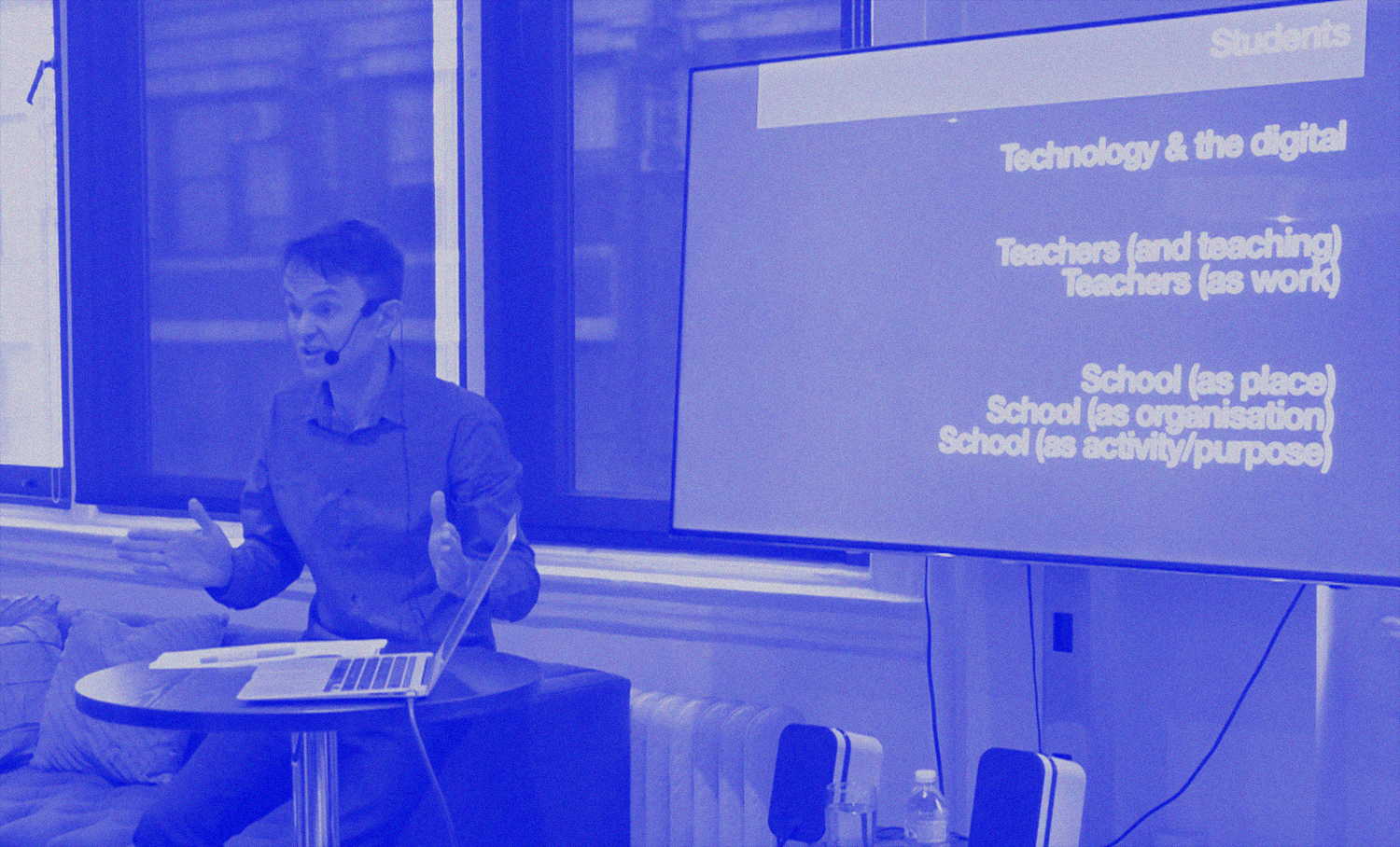In this Databite, Neil Selwyn works through some emerging headline findings from a new three year study of digital technology use in Australian high schools.
In particular, Neil highlights the ways in which schools’ actual uses of technology often contradict presumptions of “connected learning,” “digital education” and the like. Instead Neil considers:
- How and why recent innovations such as maker culture, personalised learning and data-driven education are subsumed within more restrictive institutional ‘logics’;
- the tensions of ‘bring your own device’ and other permissive digital learning practices;
- how alternative and resistant forms of technology use by students tend to mitigate *against* educational engagement and/or learning gains;
- the ways in which digital technologies enhance (rather than disrupt) existing forms of advantage and privilege amongst groups of students;
- how the distributed nature of technology leadership and innovation throughout schools tends to restrict widespread institutional change and reform;
- the ambiguous role that digital technologies play in teachers’ work and the labor of teaching;
- the often surprising ways that technology seems to take hold throughout schools – echoing broader imperatives of accountability, surveillance and control.
The talk provides plenty of scope to consider how technology use in schools might be “otherwise,” and alternate agendas to be pursued by educators, policymakers, technology developers and other stakeholders in the ed-tech space.
Neil Selwyn is a professor in the Faculty of Education, Monash University. His research and teaching focuses on the place of digital media in everyday life, and the sociology of technology (non)use in educational settings.
About Databites
Data & Society’s “Databites” speaker series presents timely conversations about the purpose and power of technology, bridging our interdisciplinary research with broader public conversations about the societal implications of data and automation


